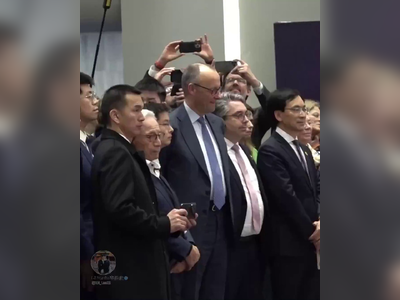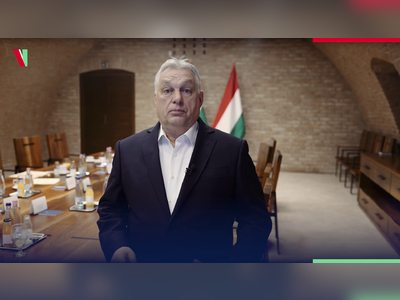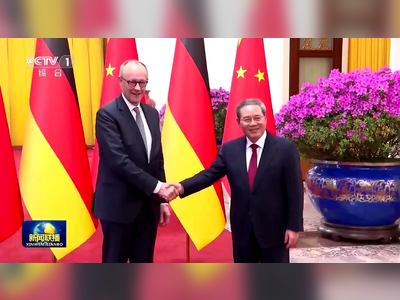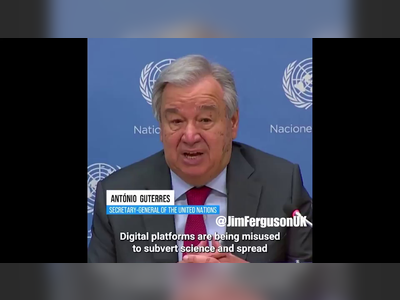
Belgium Leads New EU Consortium to Streamline Medicines Approval Process
A new collaborative framework aims to enhance health technology assessments across the European Union.
Belgium is spearheading a new European consortium aimed at streamlining the evaluation of health technologies throughout the European Union.
This initiative is designed to simplify the assessment process for new medicinal products and high-risk medical devices, thereby facilitating quicker, evidence-based decision-making and improving access to innovative treatments.
The consortium consists of 34 health technology assessment (HTA) agencies from 19 EU member states, which will collectively conduct joint clinical assessments and scientific consultations for medicines and medical devices.
This effort is being implemented under EU Regulation 2021/2282 on Health Technology Assessment (HTAR), which formally establishes a permanent EU framework for collaborative evaluations.
Pedro Facon, Vice President of the Belgian National Institute for Healthcare and Disability Insurance (NIHDI), emphasized the significance of the new regulation, noting its potential to enhance the pace at which new treatments are introduced into the market due to accelerated authorisation procedures.
However, he acknowledged that the increased speed of market entry poses challenges for payers, stating that it is essential to assess not only the safety and efficacy of treatments but also their relative added value compared to existing alternatives and their cost-effectiveness.
The initiative is being supported by the European Commission through the EU4Health programme, marking a significant advancement in collaborative healthcare policymaking within the EU. The HTA Regulation went into effect on January 12, 2025, and introduces measures aimed at increasing the efficiency and consistency of health technology assessments across member states.
Facon highlighted the collaborative aspect inherent in the HTA regulation, noting the necessity of resource sharing among the member countries.
He stated, "Every country faces the challenge of having adequate capacity and expertise to carry out these evaluations." The new framework allows for collective addressing of large-scale evaluations while each country retains responsibility for its own pricing decisions.
The initial focus of the consortium will be on cancer treatments and advanced therapy medicinal products (ATMPs), with plans to broaden the targeted areas to include other medicines and medical technologies.
As part of its commitment to this cooperative legislative framework, the European Commission has allocated a €35 million framework contract to the consortium, which is coordinated by Belgium's NIHDI.
A milestone in this process came on January 22, 2025, with the signing of the contract that strengthens the legislative and procedural foundations for cooperative HTA throughout the EU.
To facilitate the operation of the corporate structure overseeing this collaborative venture, Fabon indicated that a coordinating body will be essential, highlighting Belgium's influential position within this effort.
Over the next 48 months, the consortium will work on delivering robust, evidence-based clinical assessments that aim to guide healthcare decision-making across Europe.
By engaging in joint HTA reports, member states will be able to evaluate the therapeutic value of medicines more effectively, promoting transparency and equal access to innovative treatments.
The one-stop shop model established by this initiative will enable pharmaceutical companies to submit a single application throughout the EU, greatly simplifying the approval process and potentially increasing the EU's attractiveness as a market for medicines on a global scale.
Belgium's leadership position in this consortium is supported by a long history of fostering international cooperation in healthcare.
The nation has engaged in prior initiatives such as BeNeLuxA, which involves Belgium, the Netherlands, Luxembourg, Austria, and Ireland, aimed at addressing medicine pricing and reimbursement issues, as well as the Critical Medicines Alliance, which focused on essential medicine shortages.
Looking forward, this collaborative approach is poised to yield substantial benefits for national healthcare systems by enabling member states to share workloads, harmonize methodologies, and ultimately enhance their negotiating power regarding prices, thereby contributing to sustainable healthcare funding across the EU.
This initiative is designed to simplify the assessment process for new medicinal products and high-risk medical devices, thereby facilitating quicker, evidence-based decision-making and improving access to innovative treatments.
The consortium consists of 34 health technology assessment (HTA) agencies from 19 EU member states, which will collectively conduct joint clinical assessments and scientific consultations for medicines and medical devices.
This effort is being implemented under EU Regulation 2021/2282 on Health Technology Assessment (HTAR), which formally establishes a permanent EU framework for collaborative evaluations.
Pedro Facon, Vice President of the Belgian National Institute for Healthcare and Disability Insurance (NIHDI), emphasized the significance of the new regulation, noting its potential to enhance the pace at which new treatments are introduced into the market due to accelerated authorisation procedures.
However, he acknowledged that the increased speed of market entry poses challenges for payers, stating that it is essential to assess not only the safety and efficacy of treatments but also their relative added value compared to existing alternatives and their cost-effectiveness.
The initiative is being supported by the European Commission through the EU4Health programme, marking a significant advancement in collaborative healthcare policymaking within the EU. The HTA Regulation went into effect on January 12, 2025, and introduces measures aimed at increasing the efficiency and consistency of health technology assessments across member states.
Facon highlighted the collaborative aspect inherent in the HTA regulation, noting the necessity of resource sharing among the member countries.
He stated, "Every country faces the challenge of having adequate capacity and expertise to carry out these evaluations." The new framework allows for collective addressing of large-scale evaluations while each country retains responsibility for its own pricing decisions.
The initial focus of the consortium will be on cancer treatments and advanced therapy medicinal products (ATMPs), with plans to broaden the targeted areas to include other medicines and medical technologies.
As part of its commitment to this cooperative legislative framework, the European Commission has allocated a €35 million framework contract to the consortium, which is coordinated by Belgium's NIHDI.
A milestone in this process came on January 22, 2025, with the signing of the contract that strengthens the legislative and procedural foundations for cooperative HTA throughout the EU.
To facilitate the operation of the corporate structure overseeing this collaborative venture, Fabon indicated that a coordinating body will be essential, highlighting Belgium's influential position within this effort.
Over the next 48 months, the consortium will work on delivering robust, evidence-based clinical assessments that aim to guide healthcare decision-making across Europe.
By engaging in joint HTA reports, member states will be able to evaluate the therapeutic value of medicines more effectively, promoting transparency and equal access to innovative treatments.
The one-stop shop model established by this initiative will enable pharmaceutical companies to submit a single application throughout the EU, greatly simplifying the approval process and potentially increasing the EU's attractiveness as a market for medicines on a global scale.
Belgium's leadership position in this consortium is supported by a long history of fostering international cooperation in healthcare.
The nation has engaged in prior initiatives such as BeNeLuxA, which involves Belgium, the Netherlands, Luxembourg, Austria, and Ireland, aimed at addressing medicine pricing and reimbursement issues, as well as the Critical Medicines Alliance, which focused on essential medicine shortages.
Looking forward, this collaborative approach is poised to yield substantial benefits for national healthcare systems by enabling member states to share workloads, harmonize methodologies, and ultimately enhance their negotiating power regarding prices, thereby contributing to sustainable healthcare funding across the EU.
AI Disclaimer: An advanced artificial intelligence (AI) system generated the content of this page on its own. This innovative technology conducts extensive research from a variety of reliable sources, performs rigorous fact-checking and verification, cleans up and balances biased or manipulated content, and presents a minimal factual summary that is just enough yet essential for you to function as an informed and educated citizen. Please keep in mind, however, that this system is an evolving technology, and as a result, the article may contain accidental inaccuracies or errors. We urge you to help us improve our site by reporting any inaccuracies you find using the "Contact Us" link at the bottom of this page. Your helpful feedback helps us improve our system and deliver more precise content. When you find an article of interest here, please look for the full and extensive coverage of this topic in traditional news sources, as they are written by professional journalists that we try to support, not replace. We appreciate your understanding and assistance.











